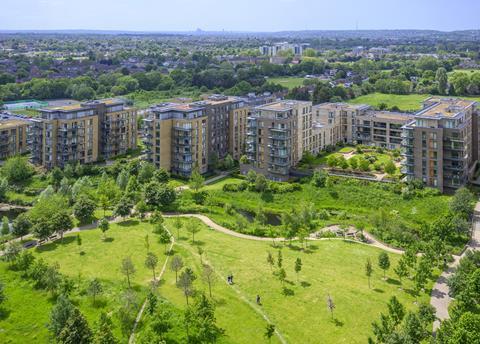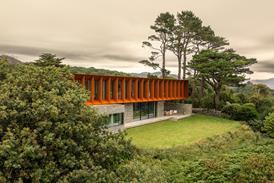The twice-delayed legislation requiring developers to increase biodiversity by 10% on projects now has a commencement date
The government’s new rules for biodiversity net gain (BNG) will now come into force next month, it has been confirmed.
Further details on the legislation published by the government reveal that BNG provisions will apply from 12 February 2024.

Under the BNG policy, all development projects will have to ensure that they generate an increase of at least a 10% in biodiversity, either on site or by off-setting.
The rules will apply to residential developments with 10 or more dwellings, or where the site area is greater than 0.5 hectares.
For commercial developments, BNG rules will apply where floor space created is less than 1,000 square metres or the total site area is less than 1 hectare
Planning applications made before 12 February 2024 or granted before this date will be exempt.
A Defra spokesperson said: ”We have prioritised the introduction of BNG for planning applications – which is the predominant route to securing planning permission.
”From 12 February, BNG will apply to new applications for planning permission, except for applications for retrospective permission, the exemptions and transitional arrangements.”
Defra confirmed that applications made under any other route, for example permission granted by a local development oder, will not be subject to mandatory BNG yet.
”Further regulations will be required to modify the procedure for these other routes to planning permission. We will release further information on this in due course,” Defra said.
The regulations had been originally due to come into force in November but were delayed, with plans to enforce them in January subsequently pushed back, too.
> Also read: Biodiversity net gain rules delayed for the second time
> Also read: Local authorities progress plans to exceed new 10% biodiversity net gain requirement
The legislation was introduced via amendments to the Environment Act with the government claiming these changes “will be fundamental in helping the country meet our target to halt the decline in species abundance by 2030.”
The two delays to the implementation of BNG was reportedly due to secondary legislation being introduced to Parliament late.
A first set of statutory instruments (SI) relating to the policy were approved by a delegated legislation committee in early January, with a second package of SIs expected to be introduced last week.
The BNG policy has been in the works for six years and some local authorities have their own related net gain policies already, and some developers like Berkeley Group are already adopting their own biodiversity approaches on sites.
According to research by property consultancy Carter Jones, published in early January, an increasing number of local authorities are adopting policies that will exceed the 10% requirement.
















No comments yet